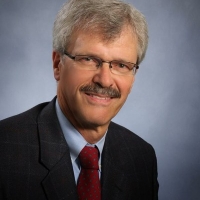Welcome to the Thanksgiving season and the Fall Newsletter!
The National Institute of Statistical Sciences (NISS) Board of Directors annu-al meeting occurs each November, and we met in Alexandria, VA November 2-3. Highlights from the meeting include a renewed commitment to increase the NISS affiliate program by recruiting new academic affiliates, reviewing the leasing of the NISS headquarters building in RTP NC, moving to new offices in Washington DC, and looking at our strengths in conducting inde-pendent panels and workshops on topics of interest to our government affil-iates. We also reviewed the 5-year Strategic Plan completed in 2016, which identifies strengths and opportunities available to NISS. Reflecting on the
past as we look to the future reminded us of the opportunities that NISS can pursue to address the many society challenges facing the nation today. What are the most critical issues that need to be examined, for which data and statistical sciences can illuminate solutions? We welcome your suggestions.
As noted in this Newsletter and our www.NISS.org website, NISS has co-sponsored many events open to faculty, postdocs, and graduate students with funding available through the Affiliate Award Fund (AAF) held for each affiliate member. Recent events highlighted here are the STATFest held at Amherst Col-lege, the International Conference on Advances in Interdisciplinary Statistics and Combinatorics (AISC) in Greensboro, NC, and the Women in Statistics and Data Science (WSDS) conference. At each of these events students and faculty traveled from other affiliates to attend and utilized their AAF to cover their costs. When hosting an event, the affiliate organizers can utilize these funds to support speaker costs, and attendees from other affiliates can cover their registration and travel expenses.
NISS Affiliate Award Funds can also be utilized at conferences such as CSP, ENAR, WNAR, and WSDS – the recent WSDS program is highlighted in this newsletter with the enthusiastic response from several attendees. Workshops at NSF supported institutes such as IPAM, ICERN, MBI, MSRI, and SAMSI are all eligible for travel funds, as well as those of our sister organization the Canadian Statistical Sciences Insti-tute (CANSSI). The latest two-day short course on R & Spark was held in NC at the SAMSI offices, with 35 attendees.
The latest quarterly NISS-Merck Meet-up broke our record with over 350 attendees online from industry, government and academia. The topic Real World Data and its Applications in the Pharmaceutical Industry stirred much interest, since RWD offers the possibility of obtaining both efficacy and safety data in real world settings for a much larger and more representative patient population of potential users of a new drug or therapy than is possible with a clinic based Randomized Trial. Links to this and previous meet-ups are available on page 5 of this Newsletter and our website. We welcome suggestions for other timely topics for this forum.
We also initiated an academic Meet-up series targeted at graduate students and postdocs at Academic Affiliates, with the first topic: “Landing Your First Job as a Statistician.” More than 100 signed up for this event, which can also be viewed on our website under past events. On page 4 of the Newsletter we pro-vide a brief view of this event and links to the recorded video. Future topics in this series will cover career development and professional growth, including communication skills.
As reported to the board, a major activity of NISS is conducting expert panels on a variety of topics for government agencies. The National Institute of Statistical Sciences (NISS), an independent research organization, can serve as a neutral, objective expert in delivering research in science and public policy. NISS identifies, catalyzes and fosters high-impact cross-disciplinary and cross-sector research involving the statistical and data sciences. What are the issues today that dominate the news and would benefit from more intense investigation and scrutiny from experts with diverse viewpoints using the tools of the data and statistical sciences? Does public health and security increase with our current freedoms to own fire-arms? Do our health systems succeed in balancing prevention and early detection effectively for the best cost/benefit outcomes? NISS can provide forums to address these and other challenging issues.

